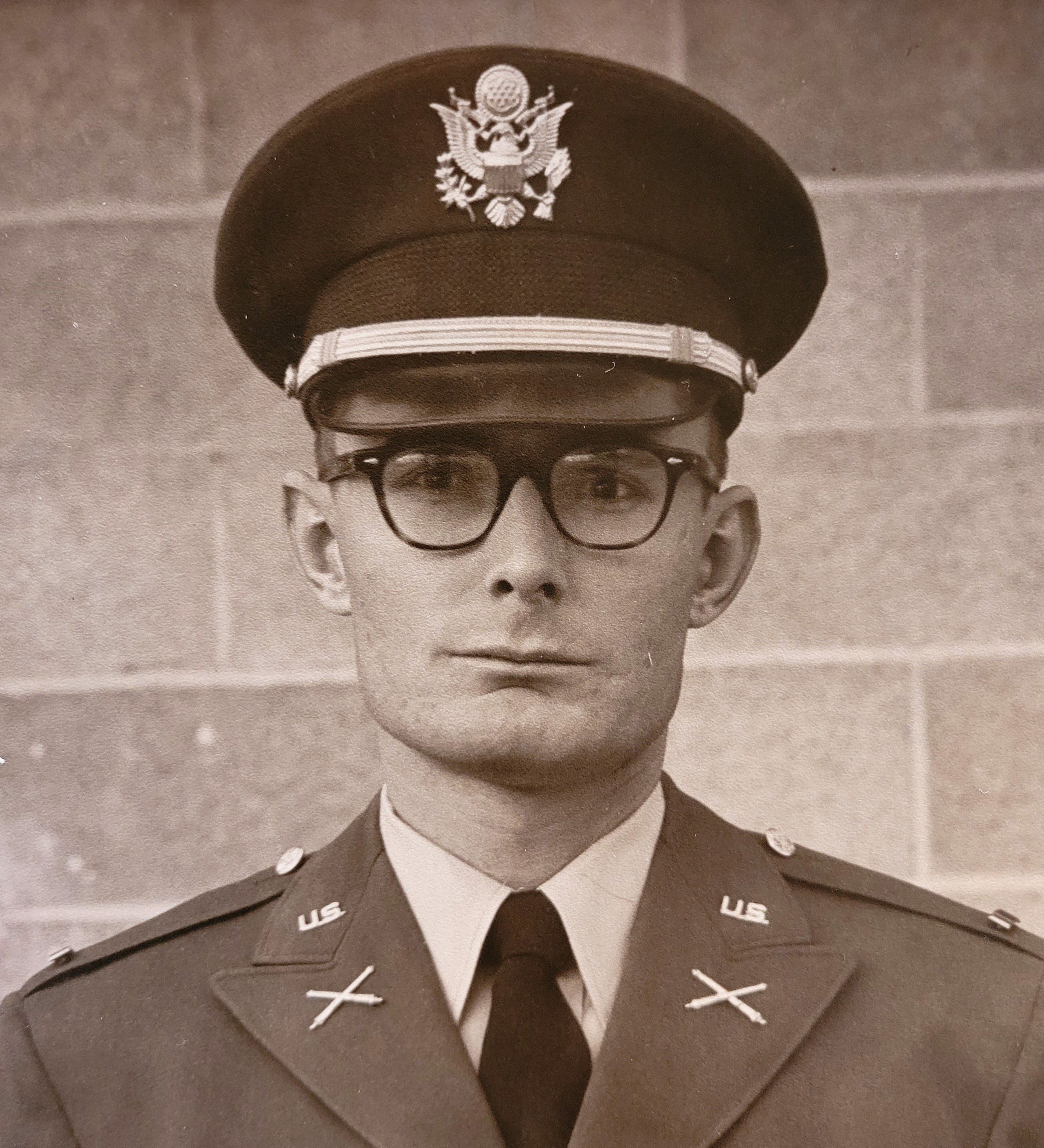[ad_1]
Editor’s note: This is the second of two articles highlighting the military background of the late Morris Burger.
As a farm kid who had seen little of the world outside of Moniteau County prior to joining the U.S. Army, Morris Burger found himself on the front lines of the Cold War in Germany in 1958. Though just an untested young officer in command of a field artillery battery possessing nuclear capabilities, he and his fellow soldiers continued to train in the event a conflict erupted between the U.S. and the Soviet Union.
“We … took our entire battalion to our annual Seventh Army tests that took place east of Nuremberg at a base called Grafenwoehr,” Burger wrote in his later years. “Our mission was to give atomic support to the British ground (forces), gaining arms such as their infantry and armor.”
He added, “At the time, Germany was divided among the Allies. The British occupied the northern part, the French a smaller section in the middle and the U.S. the larger central and southern region.”
During training exercises near the Czechoslovakian border, Burger recalled that staff from the Seventh Army evaluated the readiness and performance of each of their battalion’s gun sections. In the end, his section was recognized as the best M65 atomic gun crew in the entire Seventh Army in Germany.
To celebrate their achievements, the soldiers walked to the nearby border of Czechoslovakia — a Warsaw Pact country that was at the time under the control of the Soviet Union — and engaged in an act that had been popularized in World War II.
“The celebration ended when we went to the fence at the border and urinated through the Iron Curtain into Czechoslovakia,” he mirthfully recalled. “Lucky for us, it was not an electric fence.”
During the United States’ crossing of the Rhine River in March 1945, Gen. Patton urinated into the river from a pontoon bridge, symbolizing United States’ historic entrance into Germany.
As a junior officer, Lt. Burger was frequently required to serve an overnight shift as the battalion duty officer. During New Year’s Eve 1958, while fulfilling such a duty, he was contacted by a sergeant requesting that he come to their barracks immediately.
When arriving at the scene, he observed a highly intoxicated and belligerent enlisted soldier sporting for a fight with anyone who might oblige him. Burger confronted the soldier and was met with the blunt reply, “I’m going to kill every (expletive) lieutenant in the United States Army!”
He said, “A brief conversation followed. When he started to come toward me, I pulled out a loaded 45-caliber pistol and chambered a bullet. I told him if he took one more step, he would be heading for the hospital.”
Continuing, he added, “The bullet being chambered broke the eerie silence and had an immediate sobering effect on him. He stopped and hung his head in a quiet surrender.”
Burger then instructed some of the enlisted men who witnessed the event to put the intoxicated soldier in bed and for the sergeant to have him report to his office the following afternoon, on New Year’s Day.
“When he met with me, he was the most respectful, contrite young man I have ever seen,” he wrote. “I told him I was not going to report the incident or charge him with anything … since he did obey my order. He went away sobbing, apologizing and thanking me for not causing more trouble for him.”
Two weeks following this incident, Burger was promoted to first lieutenant. The next several months of his overseas assignment fell into something of a routine as he gained experience and confidence as an officer. Several months later, in June 1959, having completed his active-duty commitment, he boarded an airplane and returned to the states.
Shortly after receiving his discharge, Burger joined his father’s expanding business, Burgers’ Smokehouse. He also made the decision to propose to his fiancée, Dolores, and the couple married Sept. 10, 1960, at First Baptist Church. In the coming years, they raised two sons and a daughter.
“My Army career in the active reserves continued for another five years,” Burger explained. “It consisted of training one night each week and one two-week summer camp each year. The weekly training occurred at Tipton.”
He further noted, “The unit at Tipton was small, maybe 18 to 22 soldiers. I was the commanding officer for the last three years. It was easy duty … (w)e were a live and let live bunch.”
While finishing out his military career with the Tipton unit, he was promoted to the rank of captain.
Morris Burger was an active member and supporter of many benevolent organizations and received several accolades throughout the years. Yet one of his most enduring legacies has been his association with Burgers’ Smokehouse and helping to grow the company into a nationally recognized brand prior to his retirement in 2000.
Following a lengthy and resurgent battle with cancer, the 85-year-old veteran died Dec. 16, 2020. His military experiences, Burger often explained, provided a leadership foundation that inspired success in many facets of his daily life.
“After he finished his overseas service, my father came home and got involved with the family business and rarely spoke about his military service,” Steven Burger said. “But he was proud of being the first of his family to attend college and likewise, being able to fulfill his ambition of becoming an officer in the Army.”
He concluded, “The military opened up the world for him, and he credited those experiences as a large part of the leadership development that helped him successfully guide the business in later years.”
Jeremy P. Ämick is the author of the upcoming history compilation “Moments Made on the Moreau.”

[ad_2]
Source link
